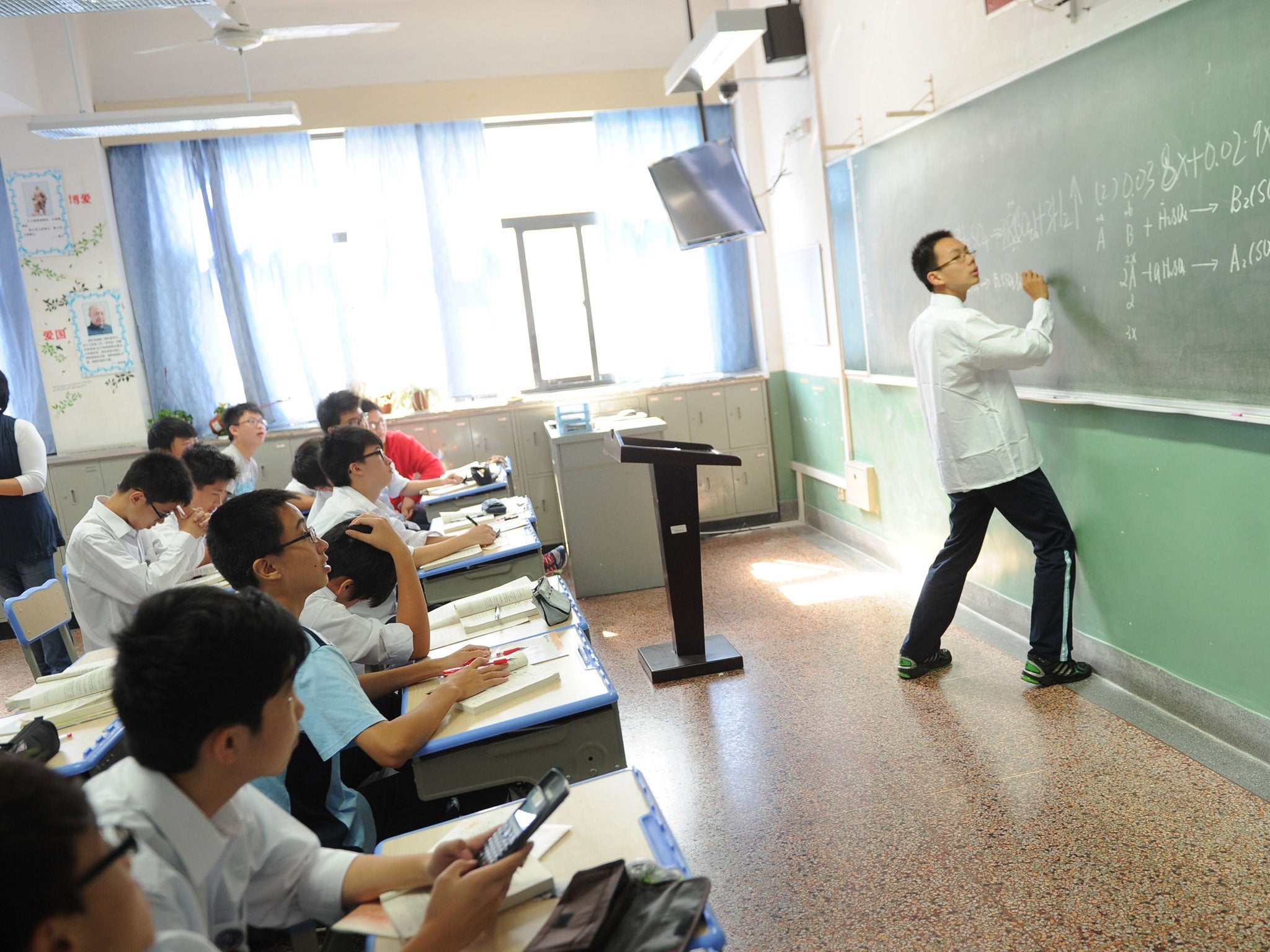English pupils 'two years behind' Asian peers in maths
Research shows growing gap between students in the UK and those in Taiwan and Hong Kong

Your support helps us to tell the story
From reproductive rights to climate change to Big Tech, The Independent is on the ground when the story is developing. Whether it's investigating the financials of Elon Musk's pro-Trump PAC or producing our latest documentary, 'The A Word', which shines a light on the American women fighting for reproductive rights, we know how important it is to parse out the facts from the messaging.
At such a critical moment in US history, we need reporters on the ground. Your donation allows us to keep sending journalists to speak to both sides of the story.
The Independent is trusted by Americans across the entire political spectrum. And unlike many other quality news outlets, we choose not to lock Americans out of our reporting and analysis with paywalls. We believe quality journalism should be available to everyone, paid for by those who can afford it.
Your support makes all the difference.England's brightest maths pupils are two years behind those in the Far East by the time they take their GCSEs, according to an international study published today.
The gap emerges during their secondary schooling, it shows, revealing that at the age of 10 they are still the equal of their peers in places such as Taiwan and Hong Kong.
The study, by researchers at the University of London's Institute of Education, reveals that the best English pupils also appear to be losing ground to their European peers between the ages of 10 and 16.
The findings confirm fears that the UK's brightest children are not being stretched at school. Last month, chief schools inspector Sir Michael Wilshaw ordered a "rapid response survey" to show how state schools teach their most able children.
Dr John Jerrim, one of the authors of the report, described the findings as "worrying". But he warned against concentrating on tackling problems in secondary schools, arguing that earlier intervention was necessary. Some pupils were already some distance behind those in East Asia by the time they were 10, he added. The study, by Dr Jerrim and Dr Alvaro Choi, analysed children's performance in two world-renowned international studies of attainment – the Programme for International Student Assessment (Pisa) and the Trends in Mathematics Study (Timms).
Dr Jerrim and Dr Choi say greater attention needs to be paid to the most abler students as they could be vital for the future of British industry – although they caution against dividing pupils into different ability groups at an early age, saying this could be counter-productive.
They add that some of the problems may well be outside of the school system to solve: "Cultural and social factors might be behind these countries' (in the Far East) strong Pisa and Timms test performance. In East Asian cultures, education has historically been highly valued. This can be seen not only in teachers' high salaries but also in the heavy investment of families in private tutoring services."
"It's also worth remembering, of course, that factors which can lead to improved academic performance can have negative side-effects, such as increased psychological pressure on students and greater financial demands on parents.
"Yet, in an increasingly competitive world... such a cultural shift may be necessary to ensure England's future prosperity."
Schools minister Elizabeth Truss blamed Labour for the decline in pupils' performance, adding: "Based on data between 2003 and 2009 it shows that our top pupils actually lose ground as they get older, not just with their peers in the Far East, but with those in every other country."
Join our commenting forum
Join thought-provoking conversations, follow other Independent readers and see their replies
Comments